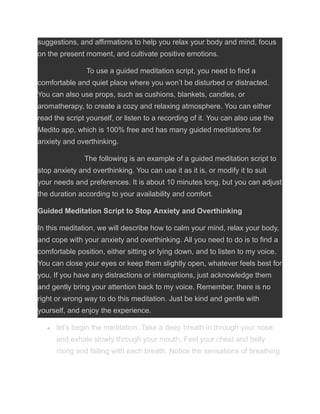
# The Unseen Constraints of Language in Mindfulness Practice
Mindfulness is frequently described as the art of being entirely present in the moment, fostering a deep awareness of the here and now. For numerous individuals, mindfulness serves as a pathway to tranquility, health, and mental clarity. While language is usually our most powerful means of interacting with the world, in the realm of mindfulness, language can often impose restrictions. There are certain experiences that words simply cannot capture. This captivating paradox encourages reflection: How can we delve into profound inner awareness when the very language we depend on cannot fully express the depth of our experiences?
## The Stillness Paradox: Achieving Everything Through Inaction
A renowned quotation by Franz Kafka eloquently illustrates this paradox:
*”You do not need to leave your room.
Remain sitting at your table and listen.
Do not even listen, simply wait, be quiet, still, and solitary.
The world will freely offer itself to you to be unmasked,
It has no choice; it will roll in ecstasy at your feet.”*
This concept may seem counterintuitive. How can inaction result in substantial insight? Yet, this paradox lies at the core of mindfulness. Authentic mindfulness does not stem from searching, speaking, or thinking, but rather from still observation and tranquility. As Kafka implies, when we cease pursuing the world, we permit it to approach us. This is a fundamental lesson in mindfulness: to savor the present moment without pursuing labels, judgments, or interpretations.
But how frequently do we genuinely grant ourselves the chance to be still — to not act but merely exist? In that stillness, the necessity for language diminishes because only pure experience endures. Mindfulness manifests itself in the quiet moments that go beyond words.
## The Strengths and Shortcomings of Language
There is no doubt that language is one of our most significant gifts. It enables us to express complex thoughts, emotions, and experiences. It nurtures connection, facilitating the creation of culture, society, and relationships. Nevertheless, in the pursuit of mindfulness, language also reveals its limitations. The well-known quote by philosopher Ludwig Wittgenstein succinctly encapsulates this notion:
*”The limits of my language mean the limits of my world.”*
In mindfulness, the very process of naming, interpreting, or describing an experience creates a distance between us and that experience. The moment we articulate what we feel, see, or sense, we superimpose interpretations, narratives, and conceptual frameworks onto the rawness of the moment. Mindfulness, in its most authentic form, advocates for direct, unmediated experience — one that goes beyond the bounds of language.
We are invited to investigate sensations, emotions, and thoughts without attempting to explain or evaluate them. This practice brings us nearer to the essence of being itself, skirting the complexities that language often enforces.
### Meditation: Experiencing, Not Analyzing
In mindfulness meditation, particularly in practices such as body scans or breath awareness, attention shifts from thoughts and words toward raw sensory presence. Mindful practitioners are often encouraged not to label their observations with words but simply to observe any sensation as it arises and fades. Be it the warmth of your hands, the rhythm of your breath, or the sensations of sitting, these experiences don’t necessitate explanation.
As Jon Kabat-Zinn, the architect of Mindfulness-Based Stress Reduction (MBSR), famously states:
*”Mindfulness means paying attention in a particular way: on purpose, in the present moment, and non-judgmentally.”*
The intention is unmistakable — to “pay attention” without adding interpretations. Language, with all its symbolic significance, can become a distraction if we hold onto it too tightly during meditation. The essential idea is to *experience* rather than *analyze*.
## Nature: A Connection Without Words
Nature possesses a remarkable ability to engage us in the present moment, often without the need for words. Picture yourself walking through a springtime forest, inhaling the fresh scent of damp earth while feeling the cool breeze on your skin. The sounds of birds singing, the stillness that envelops the trees — these moments communicate through a subtle yet powerful language.
The natural environment offers a gateway to mindfulness that exists beyond the necessity for words. As poet Mary Oliver articulated in her famous line:
*”Instructions for living a life: Pay attention. Be astonished. Tell about it.”*
Notice that the “telling about it” aspect comes last. At times, in moments of true mindfulness, the process of expressing experiences through words becomes unnecessary and even diminutive. We simply rest in wonder and awe, allowing the present moment to unfold without contemplating or articulating it.
Nature teaches us that some of life’s most profound experiences — be it the sight of a starlit sky or the sound of a babbling brook — transcend verbal description.
## Creative Expression: Beyond the Bounds of Language
Art, in its myriad forms, serves as another medium that surpasses the limits of language. Whether through painting, music, or dance, artistic expression often taps into feelings and emotions that